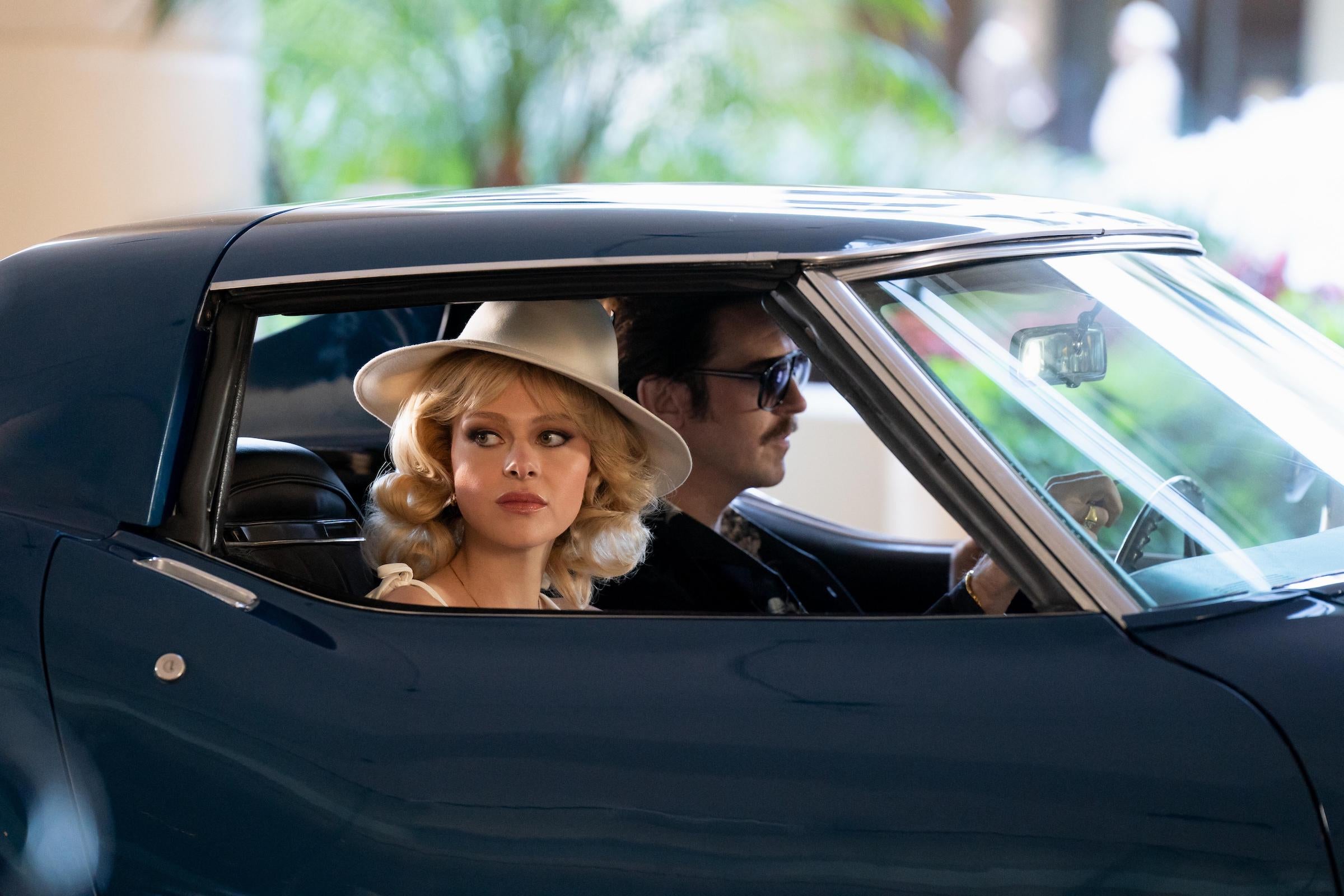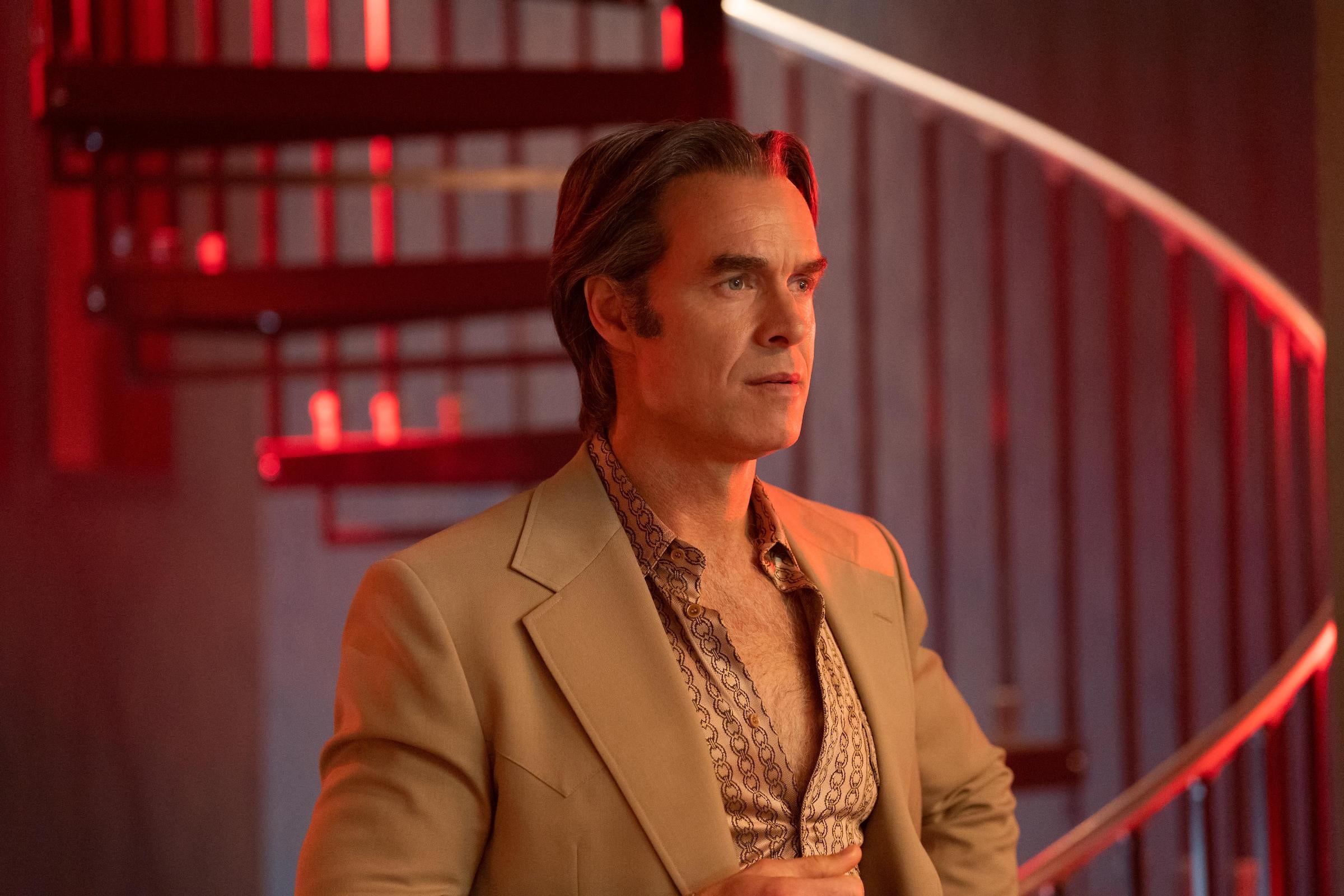Welcome to Chippendales: How America’s first male strip club led to hitmen and suicide
Creator Robert Siegel tells Tom Murray about the unbelievable true tale behind his new Hulu series starring Kumail Nanjiani

Your support helps us to tell the story
From reproductive rights to climate change to Big Tech, The Independent is on the ground when the story is developing. Whether it's investigating the financials of Elon Musk's pro-Trump PAC or producing our latest documentary, 'The A Word', which shines a light on the American women fighting for reproductive rights, we know how important it is to parse out the facts from the messaging.
At such a critical moment in US history, we need reporters on the ground. Your donation allows us to keep sending journalists to speak to both sides of the story.
The Independent is trusted by Americans across the entire political spectrum. And unlike many other quality news outlets, we choose not to lock Americans out of our reporting and analysis with paywalls. We believe quality journalism should be available to everyone, paid for by those who can afford it.
Your support makes all the difference.There’s substance underneath all the cocaine and thongs,” says Welcome to Chippendales creator Robert Siegel. The writer/producer behind Pam & Tommy, Hulu’s 2021 dramatisation of Pamela Anderson and Tommy Lee’s sex tape scandal, has turned his attention to the wild story behind the establishment of America’s first male strip club. The eight-episode drama – out now on Hulu in the US and Disney+ in the UK – follows Kumail Nanjiani as Somen “Steve” Banerjee, the Indian entrepreneur who founded Chippendales, as he grasps for the American dream. Banerjee’s hubris, however, ultimately led to destruction, murder, and suicide.
The story began in 1975 with Bombay-born Banerjee purchasing a failing discotheque in West Hollywood, which he intended to turn into the city’s first backgammon club. He named the venue “Destiny II” – there was no Destiny I but, as Nanjiani’s Banerjee explains in the series, “The II implies it’s a sequel, projecting an air of success.” The ambitious name serves as a metaphor for Banerjee’s fake-it-till-you-make-it mentality.
“His motivation is never malice,” Siegel explains. “His driving force is money and prestige.” Unfortunately, the backgammon concept found him neither of those things, and it’s here he met promoter Paul Snider (played by Dan Stevens) and his then-wife, 19-year-old Playboy Playmate of the Year Dorothy Stratten (Nicola Peltz Beckham), who gave him the idea for an all-male burlesque show targeted towards women. What’s more, Stratten was behind the male dancers’ iconic tuxedo collars and cuffs combination, inspired by the Playboy Club.
He relaunched his venue as Chippendales, named after the famous 16th-century cabinet maker Thomas Chippendale – to project a veneer of class – and launched their “Male Exotic Dance Night for Ladies Only”. It was a tremendous success; however, the tale then took its first grisly twist. Stratten left Snider for Hollywood director Peter Bogdanovich and in August 1980, Snider shot and killed Stratten before taking his own life. While only a fleeting cameo in the series for Stevens as Snider, it’s a remarkable, real-life foreshadowing of the jealousy and violence that would one day take hold of Banerjee.
Despite Banerjee’s ambitions, Chippendales wasn’t the high-end club he’d dreamt of. It was “a dive bar in an industrial section of West Los Angeles”, former Chippendales employee Bruce Nahin told historian Natalia Petrzela in her 2021 documentary podcast series, Welcome to Your Fantasy. That all changed – to some extent – when Banerjee met Nick de Noia (played by The White Lotus star Murray Bartlett in the Hulu series). De Noia was a producer and choreographer who wowed Banerjee with his two Emmy awards, though, in the series at least, he neglects to mention that they were for a kids’ TV show called Unicorn Tales. De Noia turned Chippendales’ performances from a gimmick into a well-oiled burlesque show, but his creativity clashed with Banerjee, whose concern was always profit. To make matters worse, De Noia became the more palatable white face of Chippendales in 1980s America.
“Banerjee was motivated by jealousy – that Nick was getting the credit for Chippendales, jealousy that Nick was getting half of the door,” Candace Mayeron, a former associate producer for the revue, said in the 2021 documentary Curse of the Chippendales. Siegel bemoans a lack of footage available to research Banerjee as Nick “really became the face of the thing”.

“There’s footage of Nick being interviewed on a lot of the big talk shows at the time,” Siegel says. In 1984, De Noia convinced Banerjee to let him open up a New York franchise of Chippendales, signing the touring rights to the franchise “in perpetuity” on a paper napkin. Banerjee did not know what perpetuity meant but didn’t want to lose face by asking. His pride would ultimately be his downfall.
Two years later, the business was facing financial ruin as Banerjee had poured company money into owning his own printing press, only to have a disaster printing the Chippendales calendar. Banerjee came from a printing family – his father owned a press in Bombay and so buying one in Los Angeles was a matter of pride for the expat. Banerjee had hired a freelance artist to draw up his calendars but refused to pay him overtime. The layouts were submitted half-arsed, and, despite his background, Banerjee failed to proof them before they went to press. As a result, 300,000 copies of the 1987 calendar were printed with an erroneous 31 days in February. The mistake cost Banerjee tens of thousands of dollars. “It was a gift as a writer,” Siegel rejoices, “I was just handed this tragic irony on a silver platter.”

Meanwhile, Banerjee was facing a lawsuit from De Noia over the lucrative touring rights he’d signed away on the napkin. It was at this point that Banerjee took drastic measures to remove his business partner from the equation for good. The boss tasked his subordinate Ray Colon (depicted in the Hulu series by Tick Tick Boom’s Robin de Jesús) with carrying out a hit on De Noia, which Colon subcontracted to a junkie named Gilbert Rivera Lopez. On 7 April 1987, Lopez walked into De Noia’s Manhattan office and shot him in the face with a large calibre pistol. A year later, De Noia’s family sold his share of Chippendales to Banerjee for $1.3m (£1.1m).
It seemed like Banerjee had gotten away with it, too, but the entrepreneur’s thirst to destroy the competition became insatiable. In 1990, Banerjee once again employed Colon’s services to take care of two former Chippendales dancers who set up a rival club named Adonis in Blackpool, England. Colon once again outsourced his assassin, paying a hitman with the intimidating nickname “Strawberry” $25,000 (£21,000) per kill for the Adonis producers, Steve White and Read Scott. Most extraordinary of all was the method by which the assassinations were to be carried out – Strawberry was given a suitcase full of cyanide and told to stab both men with a syringe full of the stuff while in the Blackpool club. Unfortunately for Banerjee, Strawberry got cold feet and ditched the cyanide hours before the hit was supposed to take place. “These British strippers were of no threat to [Banerjee],” Siegel says. “He was just so crazed about competition and took it so personally.”
Strawberry flew back to Las Vegas and spilt the beans to the FBI, fearing that Colon would have him killed if he returned to Los Angeles. The FBI raid on Colon’s home found enough cyanide to kill 230 people, which he claimed was for gophers. Colon eventually agreed to a plea deal, giving up his boss as the mastermind behind the assassination attempts, De Noia’s murder and past arson attacks on competing LA businesses. Banerjee was arrested in 1993.

The Chippendales owner pleaded guilty to the charges he faced, however, hours before his final sentencing on 23 October 1994, the tale took one final, tragic twist. Banerjee was found dead by suicide in his jail cell. His death meant that instead of his assets being seized, Chippendales went to his wife, Irene (played by Annaleigh Ashford in the drama), who later sold the franchise for $2.5m (£2.1m). It’s a truly astonishing tale depicted by a career-best Nanjiani. Siegel is right, under all the cocaine and thongs, there really is a lot going on.
Welcome to Chippendales is out now on Disney+ in the UK and Hulu in the US



Join our commenting forum
Join thought-provoking conversations, follow other Independent readers and see their replies
Comments